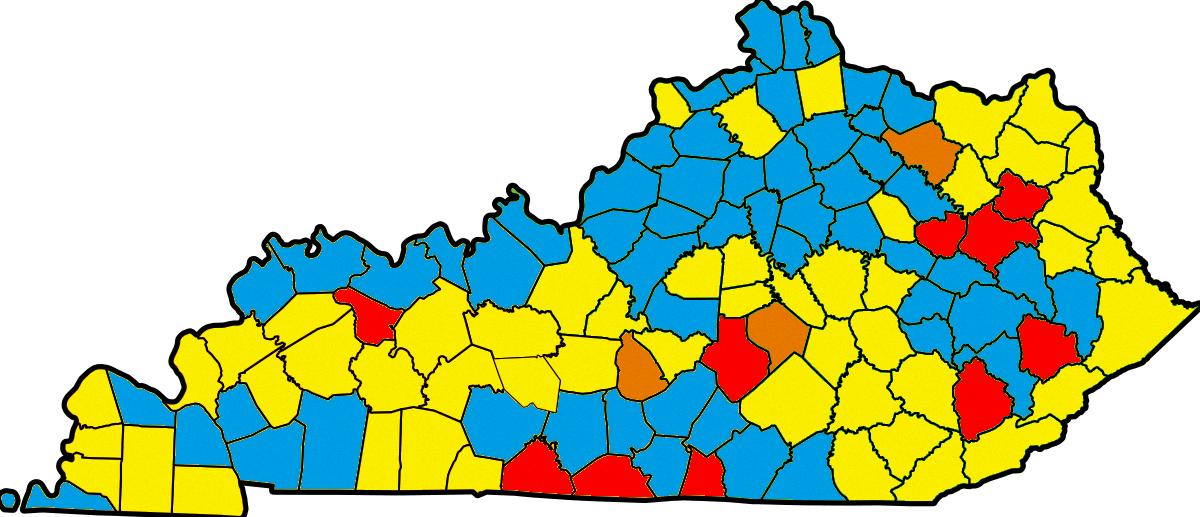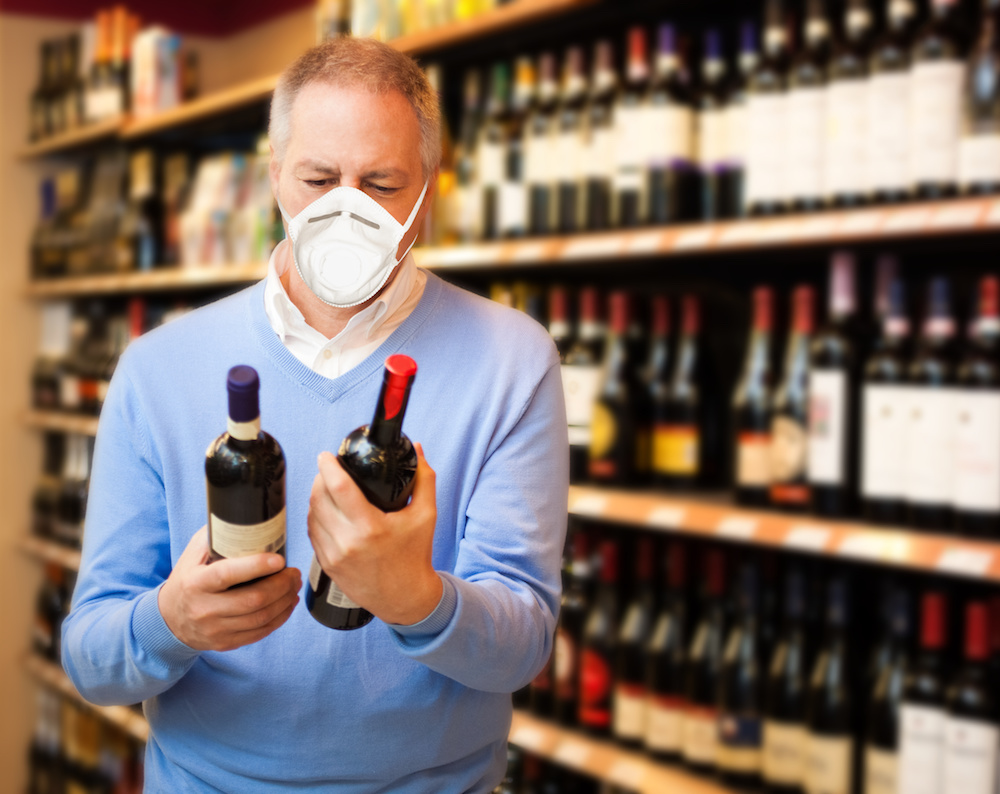Dry counties have been a part of Kentucky’s history for decades, and their existence continues to be a topic of debate. In Kentucky, a dry county is one where the sale of alcohol is prohibited, while a wet county permits full retail sales of alcohol. There are also moist counties that only allow the sale of alcohol in restaurants. Kentucky is unique in that it has a handful of technically dry counties that encompass wet cities, making the situation even more complicated.
The reasons behind the existence of dry counties in Kentucky are varied. Some counties prohibit alcohol sales due to religious beliefs, while othrs do so due to moral concerns or a desire to reduce alcohol-related crimes. However, the most common reason for a county to be dry is the result of a local referendum, where residents vote on whether or not to allow the sale of alcohol within their county.
Despite the prohibition of alcohol sales in dry counties, many residents still find ways to access alcohol. This can include traveling to neighboring wet counties to purchase alcohol or even making their own moonshine. It’s also worth noting that many dry counties are home to wet cities, meaning that while the county as a whole prohibits alcohol sales, certain cities within the county may allow them.
While dry counties remain a part of Kentucky’s cultural landscape, there have been efforts to change this. In recent years, there have been several attempts to overturn dry county laws, with many arguing that the prohibition of alcohol sales is outdated and limits economic growth. Some have also pointed out that the lack of alcohol sales can lead to increased drunk driving, as individuals may choose to drink and drive to neighboring wet counties to purchase alcohol.
Dry counties in Kentucky are a unique aspect of the state’s culture and history. While there are certainly arguments for and against their existence, it’s clear that they will continue to be a topic of debate for years to come. Whether or not dry counties will eventually be phased out remains to be seen, but one thing is for sure: the discussion surrounding their continued existence is far from over.
Drinking Alcohol in Kentucky’s Dry Counties
In Kentucky, the answer to whether or not you can drink in a dry county depends on the specific county’s alcohol laws. In dry counties, the sale of alcohol is prohibited, but possession and consumption of alcohol may still be legal. However, some dry counties may also prohibit the possession and consumption of alcohol. It is important to note that driving under the influence of alcohol is illegal in all counties of Kentucky. It is advisable to check the local alcohol laws before consuming or possessing alcohol in any county of Kentucky to avoid any potential legal issues.

Source: commons.wikimedia.org
Counties in Kentucky That Are Wet
In Kentucky, counties are classified as either “dry” or “wet,” depending on whether the sale of alcohol is permitted within ther borders. As of 2021, there are 39 wet counties in Kentucky, which allow the sale of alcohol in at least some areas. Some of the largest wet counties in Kentucky include Jefferson (which includes the city of Louisville), Fayette (which includes the city of Lexington), and Warren (which includes the city of Bowling Green). Other notable wet counties include Jessamine, Nicholasville, Johnson, Paintsville, Knox, Corbin, and Laurel. It is important to note that even in wet counties, certain restrictions and regulations may apply to the sale, distribution, and consumption of alcohol.
The State with the Most Dry Counties
The state with the most dry counties is Arkansas. Out of the 75 counties in Arkansas, 34 of them are dry, meaning the sale of alcohol is prohibited. This may come as a surprise to some, as the morality of dry counties has been called into question. However, the reasons for their existence can vary. Some counties may have religious or cultural beliefs that prohibit the consumption of alcohol, while others may have had issues with alcohol-related incidents in the past. Regardless of the reasons, it is important to note that the laws and regulations surrounding the sale and consumption of alcohol can vary greatly from state to state and even county to county.
Can You Purchase Alcohol in Kentucky on Sundays?
In Kentucky, the sale of alcoholic beverages is generally prohibited on Sundays. This is the default rule set by the state, and it applies to all types of alcoholic beverages, including distilled spirits, wine, and malt beverages. However, there are some exceptions to this rule. For example, local governments can choose to allow Sunday sales within teir jurisdictions by passing an ordinance to that effect. Additionally, certain types of businesses, such as restaurants and bars, may be able to sell alcohol on Sundays if they meet certain requirements and obtain the necessary licenses or permits. So, while the sale of alcohol on Sundays is limited in Kentucky, it is not entirely prohibited and can vary depending on the specific circumstances.
Drinking and Driving on Private Property in Kentucky
It is illegal to drink and drive on your own property in Kentucky. In fact, Kentucky is one of the states where it is illegal to drive under the influence (DUI) anywhere wihin state borders, including on private property. This means that if you are caught driving under the influence of alcohol or drugs on your own property, you can be arrested and charged with a DUI, even if the property is not open to the public. It is important to note that driving under the influence is a serious offense that can result in fines, license suspension, and even imprisonment. Therefore, it is always advisable to avoid drinking and driving, regardless of where you are driving.

Can Passengers Drink Alcohol in a Car in Kentucky?
Passengers cannot legally drink alcohol in a car in Kentucky. The state has a law that prohibits the possession of an open container of an alcoholic beverage in the passenger area of a motor vehicle, if the vehicle is on a public highway or a right-of-way. This means that both drivers and passengers are prohibited from having an open container of alcohol while in a car on the road. Violating this law is considered a violation offense, and can result in a fine of betwen $35 and $100. Therefore, it is important for all occupants of a vehicle in Kentucky to refrain from drinking alcohol while in a car on the road.
The Poorest County in Kentucky
The poorest county in Kentucky is Martin County. With a population of approximately 12,000 people, nearly 30 percent of its residents live below the poverty line. The majority of households in Martin County earn less than $30,000 a year, making it one of the poorest counties in the United States. This economic hardship has resulted in many challenges for the county, including limited access to healthcare and education, as well as high rates of unemployment and drug abuse. Despite thse difficulties, many members of the Martin County community are working tirelessly to improve their circumstances and create a brighter future for themselves and their families.
The Best Weather in Kentucky
According to our study, the Western Coalfields region of Kentucky has the best weather. Specifically, the town of Madisonville in this region received the highest weather score due to its average summer temperature of 77 degrees and air quality score of 20 (on a scale of 0 to 100, where 100 is the worst). This area is known for mild summers and generally pleasant weather conditions, making it an ideal location for those who enjoy spending time outdoors.
Can You Purchase Alcohol on Sundays in Lexington, KY?
You can buy alcohol on Sunday in Lexington, KY, but only from establishments that hold a Sunday drink license. The sale of alcoholic beverages on Sundays is permitted in Lexington between the hours of 1 pm and midnight. It’s important to note that not all businesses hold a Sunday drink license, so it’s best to check with the establishment before assuming that alcohol will be available for purchase on Sundays. Additionally, it’s worth noting that the consumption of alcohol in public places, such as parks and sidewalks, is prohibited in Lexington at all times.

Do Tennessee Counties Allow the Sale of Alcohol?
Tennessee has dry counties. In fact, nine out of the state’s 95 counties are completely dry. This means that the sale of alcohol and alcoholic beverages is prohibited or restricted in these counties. In dry counties, it is illegal to sell alcohol in stores, restaurants, and bars, and individuals are not allowed to possess or consume alcohol in public places. However, some dry counties may allw the sale of beer with low alcohol content. It is important to note that while these counties may be dry, neighboring counties may not be, making it easy for residents to obtain alcohol if they choose to do so.
Is Tennessee a Dry State?
Tennessee is a dry state by default. This means that counties must specifically authorize the sale of alcohol in order for it to be legal and subject to state liquor control laws. In other words, the sale of alcohol is not automatically permitted in every county in Tennessee. However, many counties in Tennessee have authorized the sale of alcohol, making it possible for residents and visitors to purchase alcohol in those areas.
Can You Purchase Alcohol in Tennessee?
Individuals who are 21 years or older can buy alcohol in Tennessee. However, it is important to note that Tennessee has strict laws regarding the sale and consumption of alcohol. It is illegal for anyone under the age of 21 to purchase or consume alcohol in the state. Additionally, alcohol can only be sold during specific hours, which vary depending on the county and type of establishment. It is also illegal to sell alcohol to anyone who appears to be intoxicated. It is important to follow these laws to ensure the safety of individuals and to avoid any legal consequences.
Can You Purchase Liquor in Grocery Stores in Kentucky?
Liquor can be purchased in grocery stores in Kentucky. However, there are certain restrictions in place. Grocery stores are required to hold wine and distilled spirits licenses in order to sell liquor. They must also provide a separate entrance to that part of the store and minors are not allowed to work in that area. On the other hand, beer can be sold in the main shopping area of the grocery store. It is important to note that these regulations may vary depending on the state and local laws.

Is Drinking in Public Allowed in Kentucky?
It is illegal to consume alcohol in a public place in Kentucky. This includes drinking an alcoholic beverage in a public area or being under the influence of alcohol to an extent that may disturb others or endanger oneself or others. Violating this law can result in fines and potential legal consequences. It is important to note that the definition of a public place can vary, but generally includes areas such as streets, sidewalks, and parks. However, there are some exceptions to this law, such as licensed establishments that have outdoor seating areas designated for the consumption of alcohol.
Can Food Trucks Legally Sell Alcohol in Kentucky?
Unfortunately, food trucks in Kentucky are unable to obtain a full liquor license. While short-term liquor licenses may be available for special events, regularly selling alcohol as part of your food truck business plan is not permitted. It is important to note that liquor laws vary by state, and it is always a good idea to research and comply with local regulations to ensure the success of your food truck business.
Conclusion
Kentucky is a state that features a mix of dry, wet, and moist counties, each with its own unique regulations on the sale and consumption of alcohol. While some counties prohibit alcohol sales entirely, othrs permit full retail sales or only allow sales in restaurants. Despite the prevalence of dry counties in the state, the morality of such laws is a topic of debate, particularly given the potential for increased drunk driving and other related issues. the existence of dry counties in Kentucky continues to be a complex issue that raises questions about personal freedoms, public safety, and the role of government in regulating alcohol consumption.
